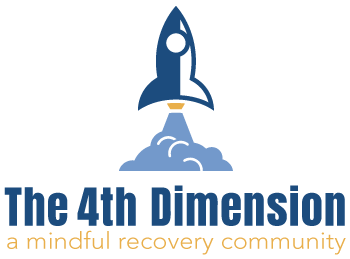01 Oct Building and Repairing Relationships in Recovery
The first thing most people in recovery want to focus on is rebuilding and healing relationships. The process of healing relationships will take time, and it will require patience. But as you walk your path of recovery, you will eventually find yourself in a place where your relationships will heal, and you can even build new relationships.
If you are in recovery, you probably have a million questions about your relationships. In this blog, we give some insight into what relationships look like in recovery.
Existing Relationships and Recovery
Rebuilding and maintaining relationships is an essential part of any recovery journey. Maintaining relationships of support increase the effectiveness of recovery programs. However, it is vital that you are evaluating relationships that will help build you up versus toxic relationships that are destructive to your recovery and health.
Avoid Toxic Relationships
It can be difficult to see that you are in a toxic relationship. It’s not uncommon for someone in recovery to have a long history of unhealthy relationships, romantic or otherwise, which makes it especially challenging to determine whom it is healthy for you to be around and trust.
One of the first things you can do is take stock of your past relationship patterns. Consider what painful and inefficient patterns you keep reliving and if you can connect these patterns to a certain type of partner or other significant relationship, such as parents. It will take some work and introspection to get a clear picture of these patterns and the types of individuals who you can connect to these painful cycles in your life. However, as you grow to understand who you are as an individual in recovery, you will also learn how to avoid these relationships and seek out healthier, supportive people to be a part of your life.
Existing Relationships of Support
If you have people around you who are supportive of your path to recovery, it will be important for them to get involved in finding their own version of support. Supportive relationships can be a vital asset for any recovery program, but it can be taxing on all parties involved. There are groups available, like Al-Anon Family Groups, that provide a community of support with others who are in a supportive role. Professional counselors can also help guide these types of relationships through the recovery process as well.
When is a Good Time to Get Back into Dating?
Many people ask, “When is a good time to get back into dating? How do you know when you’re ready to get back into a relationship?” We recommend abstaining from pursuing new romantic relationships during the initial stages of recovery. If you’re just starting your recovery, this is a dangerous time to consider entering a relationship.
As you work on discovering who you are without substance abuse holding you back, you will also be learning more about what kind of relationships are healthy and what kind of people will support your path to recovery. It will take time, and each individual is different, but eventually, you will be at a place where you can confidently pursue romantic relationships without threatening your progress.
Recovery in a Caring Community
Your healing should be a priority over healing relationships. When you start your recovery, your first inclination will be to begin repairing relationships immediately, but there is a lot of work to be done on the individual level to build a foundation for trust and individual accountability. Because it is necessary to focus on the self in the initial stages of recovery, it can feel very lonely.
At the 4th Dimension Recovery Community, we’re there for you every step of the way and want you to know that you’re not alone. Our supportive and inclusive community of peers will also be on various journeys to recovery. You can repair relationships that may seem broken for good – it just takes time, commitment, and supportive guidance.
Learn More the Mindful Recovery Community at the 4th Dimension
Our community provides a compassionate and supportive community for anyone seeking a path to recovery. We understand that each person has taken different walks in life, and so they require different options for their journey through recovery. By providing individualized care and resources, we strive to ensure recovery success for all of our patients.
If you have any questions about our program, please contact us.

